Retro Replay Review
Gameplay
Little Blue Men places you squarely behind an office desk, transforming everyday paperwork into a subtle, twisting labyrinth of choices and consequences. As an interactive fiction experience, the game relies on text-based commands that feel both intuitive and oddly ritualistic: “stand,” “file,” “examine phone,” and so on. Each decision nudges you deeper into the department’s endless circuit of forms, memos, and the occasional burst of surreal horror—especially if you decide to pick up the silent phone.
(HEY YOU!! We hope you enjoy! We try not to run ads. So basically, this is a very expensive hobby running this site. Please consider joining us for updates, forums, and more. Network w/ us to make some cash or friends while retro gaming, and you can win some free retro games for posting. Okay, carry on 👍)
The hint system is one of the game’s standout features. Stuck on a puzzle about how to process a mysteriously stamped envelope? A few well-timed hints will nudge you back on track without spoon-feeding the solution. This balance keeps the experience moving briskly, avoiding the frustration common in many text adventures. Still, you’ll need to pay attention to small details—an odd creak in the floorboards or a strange annotation on a memo can dramatically alter your path.
Replayability shines through its branching narrative. There are multiple endings, ranging from petty bureaucratic victories to unsettling final scenes that feel more fitting for a psychological thriller than a twenty-first-century office. If you have a taste for exploring every avenue—picking up that phone receiver, snooping in Benson’s cubicle, or simply trying to survive five straight days of paperwork—Little Blue Men rewards thorough investigation.
Graphics
While Little Blue Men is primarily text-driven, it does incorporate minimalist visual elements to underscore its atmosphere. Clean, monochrome menus and subtle shading mark active choices, grounding you in the antiseptic world of office fluorescence. On rare occasions, a hand-drawn sketch—perhaps of an unsettling corridor or a suspicious filing cabinet—appears to punctuate a narrative beat.
The absence of high-resolution art feels deliberate, reinforcing the monotony of office life. Rather than distract with flashy animations, the game uses typography, spacing, and occasional flashes of color—like a single blue post-it—to guide your attention. This sparse approach works in its favor, letting the writing itself paint the dreary cubicle walls and dimly lit hallways.
Even the hint system is presented visually with restraint: a subtle sidebar icon rather than an intrusive pop-up. Choices and their outcomes unfold in plain text, but every line break and paragraph indentation feels carefully composed. If you’re used to point-and-click adventures or fully animated cutscenes, the graphics may feel austere—but for players who appreciate the power of suggestion, it’s a fitting aesthetic.
Story
At its core, Little Blue Men is a study in workplace tedium warped by creeping unease. You are—but aren’t—just a cog in the wheel of an office machine. The game’s opening passage about the phone that never rings sets an ominous tone: at any moment, the humdrum world can crack, revealing something far more sinister. Will you answer when it finally does? And if you do, can you unhear what’s on the other end?
The narrative threads stretch from banal bureaucratic tasks—sorting invoices, stamping forms—to surreal horror vignettes that unfold based on your curiosity and courage. A single misstep might lead you to discover hidden files about former employees who vanished without a trace, or to overhear a coworker’s unsettling monologue. The writing deftly blends dry humor (“Benson still hogs the only stool”) with genuine dread, making each choice feel weighty.
Multiple endings cater to different playstyles. A manager’s promotion can feel as hollow as an empty inbox, while the “ultimate ending”—grisly and cryptic—underscores the game’s existential themes. Whether you seek a tidy resolution or a nightmare to haunt your dreams, the story adapts. It’s a testament to strong writing and thoughtful design that such a compact adventure can leave such a lasting impression.
Overall Experience
Little Blue Men delivers a unique blend of office simulation and surreal horror that few games attempt. With its lean presentation, text-first design, and an emphasis on choice, it feels like stepping into a Kafkaesque paperwork nightmare. The pacing is deliberate but never dull, thanks in part to the hint system that keeps you moving without undermining the sense of discovery.
For players who relish interactive fiction, this title offers exceptional value—multiple endings, atmospheric writing, and puzzles that reward close reading. Its minimalist graphics and focused scope mean there’s little wasted content; every line of text serves a purpose, whether that’s deepening the world or sharpening the tension. If you’ve ever felt the soul-draining monotony of an open-plan office, you’ll appreciate the uncanny accuracy with which Little Blue Men captures that feeling.
Ultimately, Little Blue Men is more than a game about forms and filing cabinets. It’s a meditation on routine, anonymity, and the thin line between the ordinary and the unsettling. While it may not satisfy those seeking high-octane action or lavish visuals, its carefully crafted atmosphere and branching narrative make it a must-play for fans of interactive fiction and psychological horror alike.
 Retro Replay Retro Replay gaming reviews, news, emulation, geek stuff and more!
Retro Replay Retro Replay gaming reviews, news, emulation, geek stuff and more!
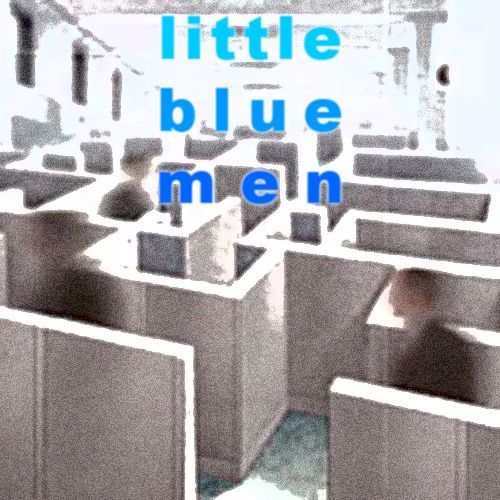
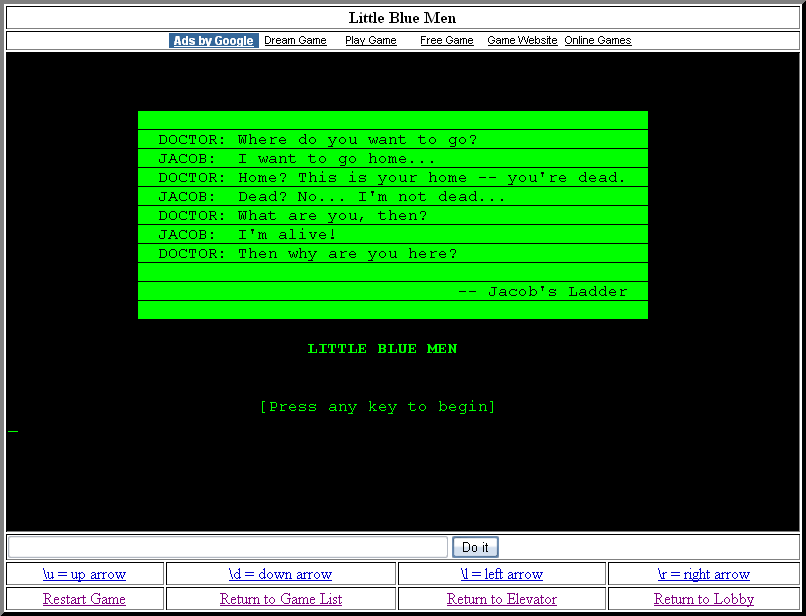
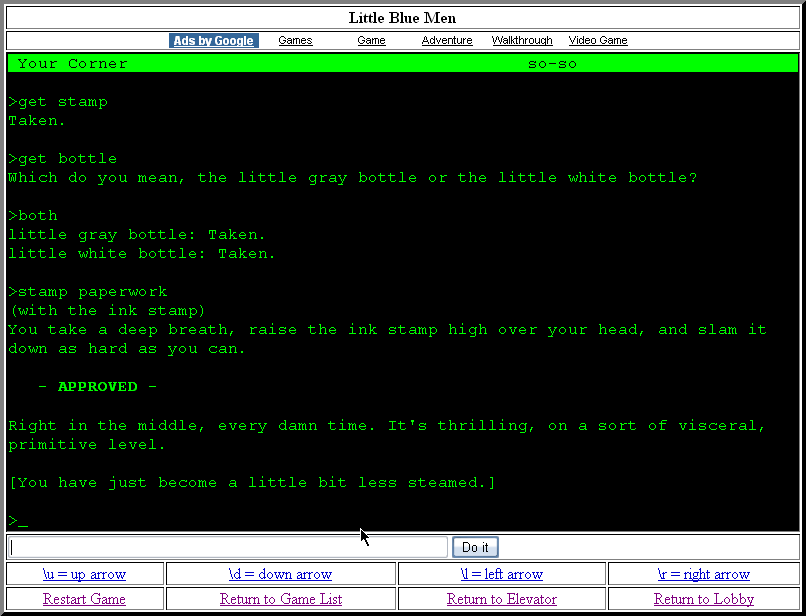
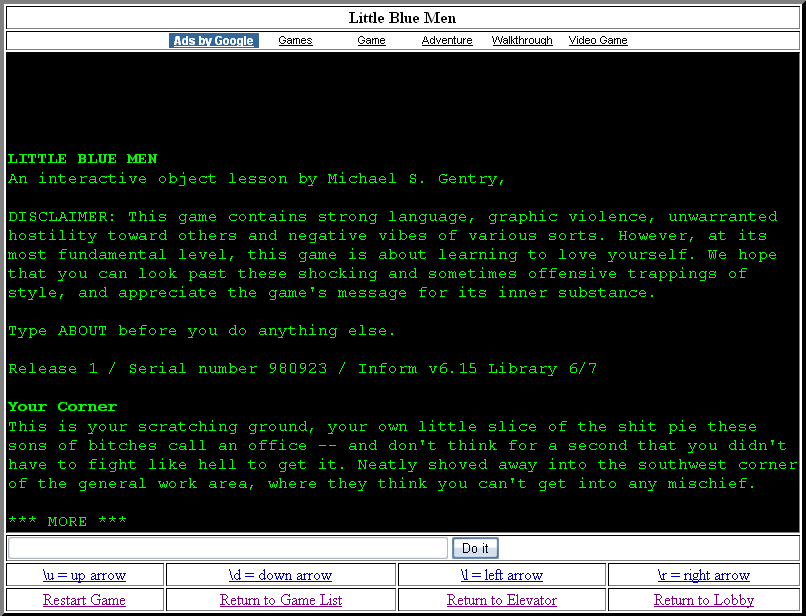
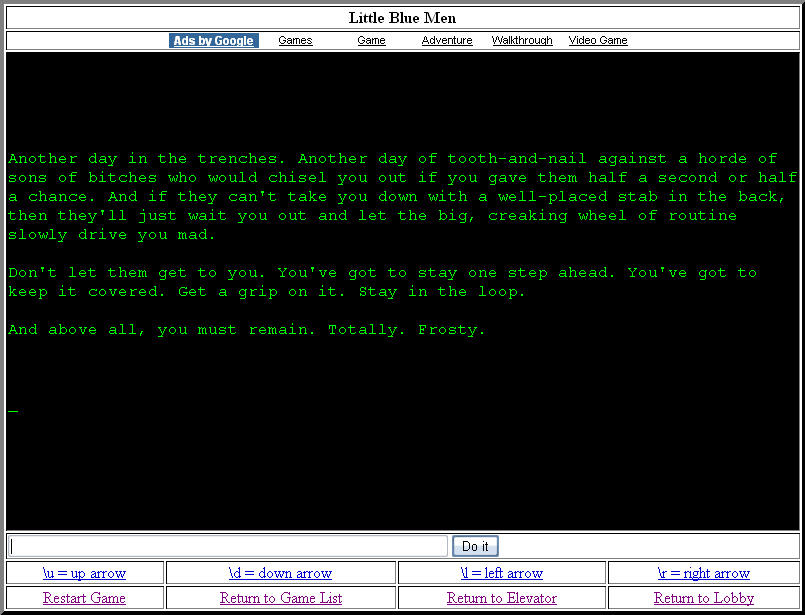
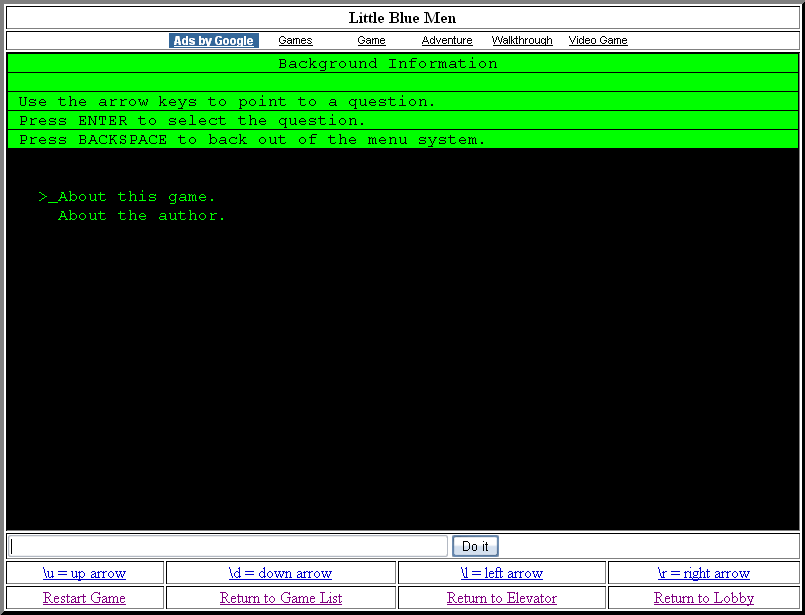



Reviews
There are no reviews yet.